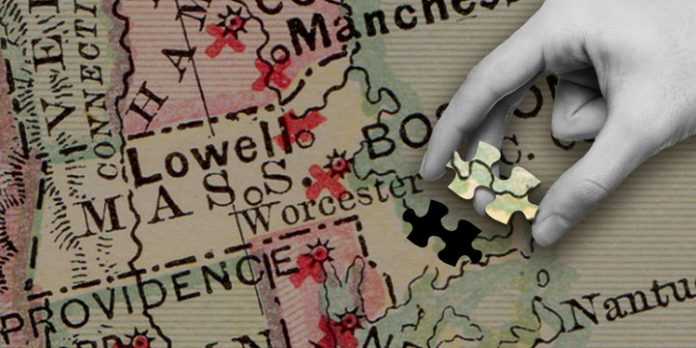Around 400 years prior, a man named Tisquantum was hijacked by an English adventurer and taken to Spain as a slave. Supernaturally, Tisquantum got away and came back to the “New World” and to the beachfront town where he once lived. In the years he was gone, his whole family passed on of sickness.
A brief span later, battling, edgy English pioneers landed on the shores where his clan, the Wampanoag, still lived. Tisquantum was critical to their survival. On account of his time in Europe, he could communicate in English. He helped the pioneers plant corn and endure winter, and he handled a harmony assertion, without which their province ― and, by expansion, the United States ― would have never existed. The main arrangement and the primary land concede to the white pilgrims in North America were deciphered by this man.
Hardly any individuals who observe Thanksgiving know Squanto’s full name or the name of his clan. Be that as it may, without Tisquantum or the Wampanoag, the Pilgrims at Plymouth Rock unquestionably would have passed on.
Also, on this Thanksgiving, the United States government is ending the reservation of the clan that respected the Pilgrims.
On Sept. 7, Cedric Cromwell, the director of the Mashpee Wampanoag Tribe got a letter from Tara Sweeney, the partner secretary of Indian issues at the Department of the Interior, illuminating him that his clan never again fit the lawful meaning of “Indian” and would lose its reservation status. This is the first occasion when that arrive held under uncommon status for clans has been removed from trust since Harry Truman’s administration.
“A similar nation that we helped shape is presently betrayed us,” Cromwell disclosed to HuffPost this week. “It’s very terrifying that our own nation is assaulting us amid the occasion that we set up.”
The fight in court over the Mashpee reservation began in 2016 when clubhouse engineer Neil Bluhm needed to open a gambling club in a piece of Massachusetts put aside for innate gaming as it were. He monetarily sponsored a little gathering of occupants from the city of Taunton, where the clan wanted to open a gambling club, to sue the Department of Interior, requesting the organization disavow the reservation’s trust status. In July 2016, the Taunton occupants won.
Be that as it may, the wording of the court’s decision kicked the choice back to the DOI, which could have lawfully attested the Mashpee’s trust status and spared its reservation. In September the organization declined to do that.
“Since the Tribe was not ‘under government locale’ in 1934, the Tribe does not qualify under the [Indian Reorganization Act’s] first meaning of ‘Indian,'” Sweeney wrote in her letter.
The rambling 1934 Indian Reorganization Act enabled the DOI to bring land into trust for clans. Prior to 1934, clans lost 90 million sections of land to allocation. From that point
forward, clans have been repurchasing stolen arrive inside their settlement regions. However, ancestral responsibility for real estate parcel does not make it Indian Country. For the clan to have the capacity to practice locale, practice self-administration or work a club there, the DOI needs to put that arrive into trust.
For quite a long time, the DOI placed land into trust decisively and reestablished 9 million sections of land of lost innate land. With the coming of Indian gaming during the 1990s, this since quite a while ago settled practice abruptly ended up dubious. Incredible gaming premiums have begun battling new trust grounds to close out clans and corner the club advertise.
In 1993, Trump, at that point a New York land head honcho profoundly put resources into Atlantic City club, affirmed before Congress that the Indian Gaming Regulatory Act was uncalled for and harming his business. “They don’t look like Indians to me,” he said.
The same country that we helped form is now turned against us.
Cedric Cromwell, chairman, Mashpee Wampanoag Tribe
Presently he and his organization are as yet contending that contemporary clans are not Indian enough for arrangement rights and government resolutions to apply. Under the Obama organization, more than 500,000 sections of land of land were taken into trust. Under Trump, the moderate reclamation of innate grounds has reached a dead stop. As indicated by the DOI’s lawful contentions, if the Mashpee Wampanoag are not Indian enough to have trust arrive, 128 of the 573 governmentally perceived clans in the United States could lose their reservations too.
With the Mashpee choice, the nation is going in reverse.
Subsequent to depleting his alternatives with the legal and official branches, Cromwell is taking his battle to the administrative branch. “Congress has a definitive whole specialist to secure clans,” he said. “In light of how we secured the early pilgrims and made this nation.”
The two legislators who speak to the clan, Reps. Bill Keating and Joe Kennedy III (both D-Mass.), have co-written enactment to bond government acknowledgment of the Mashpee Wampanoag arrive. The content of the Mashpee Tribe Reservation Reaffirmation Act is shorter than this article and clearly expresses that all laws with “general materialness to Indians” apply to the Mashpee. To put it plainly, they would at present be Indians. The bill has 21 co-supports from the two gatherings and is the clan’s last want to keep up a little bit of the land it so liberally shared 397 years prior.


















